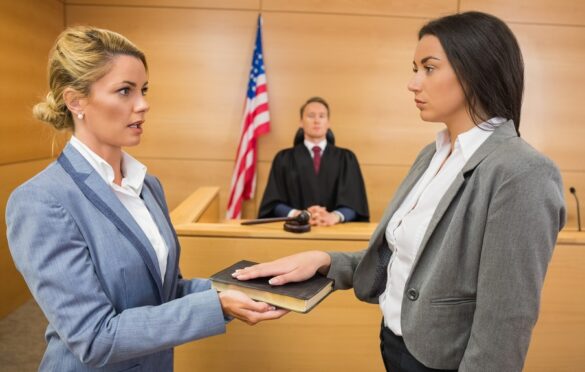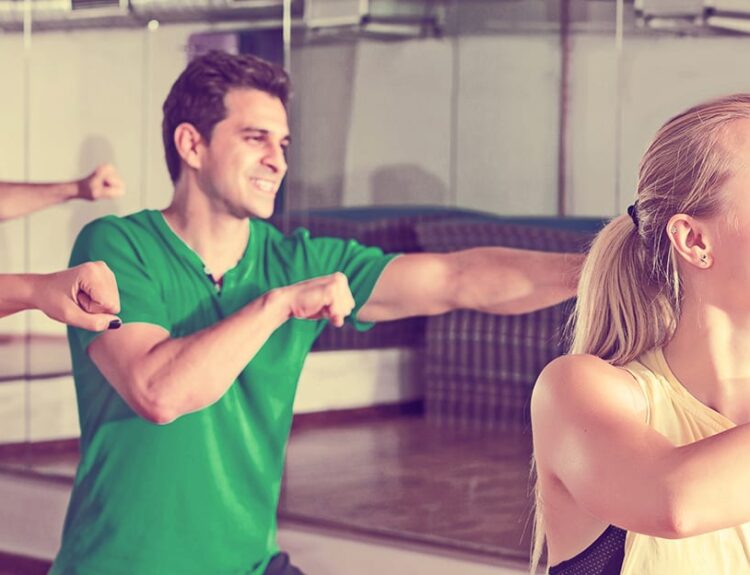In a criminal trial, witness testimonies can have a significant impact on the outcome of the case. However, when a witness provides false or misleading testimony, it can jeopardize the fairness of the trial and lead to a wrongful conviction. A criminal lawyer plays a crucial role in challenging such testimonies and ensuring that the accused receives a fair trial. In this article, we explore the strategies and methods a criminal lawyer employs to deal with false witness testimonies effectively.
The Impact of False Witness Testimonies
False witness testimonies can arise for a variety of reasons. A witness may have personal biases, may be mistaken about what they saw, or in some cases, may intentionally fabricate their testimony. Regardless of the motive, false testimonies can mislead the court, and in the worst-case scenario, result in a miscarriage of justice. A criminal lawyer must be vigilant in identifying false testimony and taking the necessary steps to discredit or challenge it during the trial.
The importance of this role cannot be overstated. A single false testimony, if not properly addressed, can alter the course of a trial, and in the case of criminal charges, it can lead to life-altering consequences for the defendant.
Identifying False Testimonies
One of the primary tasks for a criminal lawyer in the face of false witness testimony is identifying when and where the testimony is false. False testimonies can be tricky to detect, as they often appear credible at first glance. However, skilled criminal lawyers use various strategies to uncover discrepancies or inconsistencies in the testimony. Here are some of the key methods employed:
-
Cross-Examination: Cross-examination is one of the most effective tools in a criminal lawyer’s arsenal. During this phase of the trial, the defense lawyer can question the witness directly, pointing out inconsistencies, contradictions, or improbabilities in their statements. A skilled lawyer knows how to ask probing questions that may cause the witness to falter or provide contradictory statements. By carefully dissecting the witness’s testimony, the defense lawyer can expose the flaws in their account of events.
-
Reviewing the Witness’s Past Statements: False testimonies often contradict previous statements made by the witness. A criminal lawyer will often review police reports, depositions, or any prior statements the witness has made to identify any inconsistencies. If a witness’s testimony in court differs from their earlier statements, it can raise doubts about the accuracy of their account. The lawyer may use these discrepancies to discredit the witness’s credibility in front of the jury.
-
Corroborating Evidence: False testimonies can often be disproven by presenting contradicting evidence. For example, physical evidence, such as surveillance footage, alibis, or forensic data, may show that the witness’s version of events cannot be true. A criminal lawyer will search for and present evidence that refutes the false testimony, providing a clear and factual narrative that challenges the witness’s claims.
-
Witness Impeachment: In some cases, a criminal lawyer may aim to impeach the credibility of the witness entirely. This process involves demonstrating that the witness is untrustworthy or has a motive to lie. A witness may have a personal relationship with the defendant or may have previously committed acts of dishonesty, both of which could call their credibility into question. By highlighting these factors, the defense lawyer can weaken the impact of the false testimony.
-
Expert Testimony: In cases where a false witness testimony involves highly technical or specialized knowledge, a criminal lawyer may bring in expert witnesses to counter the false claims. For example, in cases involving scientific evidence, a forensic expert might testify to the unreliability or inaccuracy of the witness’s statements. Expert testimony can provide the jury with the knowledge needed to critically evaluate the witness’s account.
Challenging False Testimonies in Court
Once false testimony is identified, the criminal lawyer must take strategic action to challenge it in court. This involves a combination of legal arguments, factual rebuttals, and presenting alternative narratives. The goal is to show the court that the witness’s testimony is not credible and should not be given weight in the trial. The criminal lawyer may employ the following tactics:
-
Presenting a Compelling Alternative Narrative: A powerful strategy is to present an alternative explanation that contradicts the witness’s testimony. For instance, if a witness claims to have seen the defendant at the scene of the crime, the defense lawyer may present evidence showing that the defendant was elsewhere at the time. By providing a coherent and supported alternative, the lawyer can cast doubt on the witness’s version of events.
-
Focusing on the Lack of Evidence: If the witness’s testimony lacks any physical evidence to back it up, the criminal lawyer will highlight this fact. In criminal cases, the prosecution must prove the defendant’s guilt beyond a reasonable doubt. If the only evidence against the defendant is a potentially false witness testimony, the defense lawyer can argue that there is insufficient evidence to support a conviction.
-
Using the Witness’s Motivation: In some cases, witnesses may have personal motivations for providing false testimony, such as a grudge against the defendant or financial incentives. A criminal lawyer will seek to uncover any potential biases or personal interests that could have influenced the witness’s statements. By bringing this to light, the defense lawyer can argue that the witness’s testimony is unreliable.
-
Appealing to the Jury’s Sense of Fairness: During trial, the jury is responsible for determining the credibility of witnesses. A criminal lawyer may appeal to the jury’s sense of fairness by emphasizing the importance of evaluating all evidence critically. The lawyer can remind the jury that they must not base their verdict solely on the testimony of one potentially unreliable witness, but rather, they must consider the entirety of the evidence presented in the case.
The Role of Ethical Conduct in Challenging False Testimony
While it is essential for criminal lawyers to challenge false witness testimonies, they must also uphold the highest ethical standards. A criminal lawyer’s role is not to manipulate the facts or mislead the court, but rather to ensure that justice is served. Challenging false testimony should be done based on facts and law, with the aim of revealing the truth rather than simply winning a case.
By adhering to ethical principles, criminal lawyers maintain the integrity of the legal system while providing their clients with the best defense possible.
Conclusion
Dealing with false witness testimonies is a crucial part of a criminal lawyer’s job. It requires a combination of legal skills, critical thinking, and ethical conduct to challenge and discredit false claims. By employing strategies such as cross-examination, presenting corroborating evidence, impeaching witnesses, and offering expert testimony, a criminal lawyer can protect their client’s rights and ensure that justice is served. In the pursuit of a fair trial, every aspect of the case, including the reliability of witness testimony, must be thoroughly examined, making the role of the criminal lawyer indispensable in safeguarding the truth.







